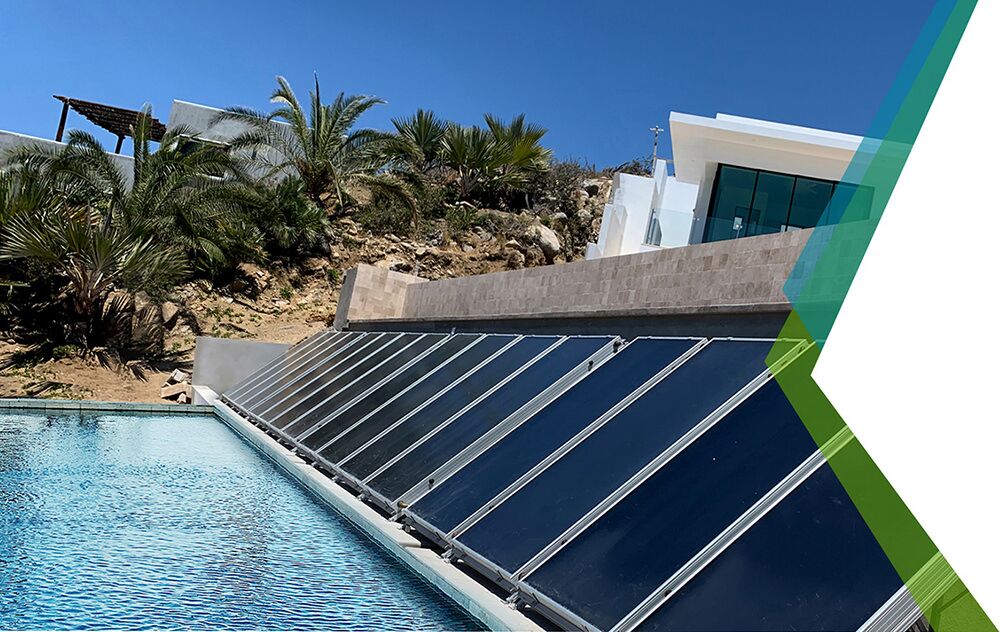As concerns about environmental sustainability and energy efficiency continue to grow, homeowners and commercial facilities alike are turning to greener solutions to meet their heating needs. Among the various eco-friendly options available, solar water heating systems for swimming pools stand out as both effective and beneficial for the environment. Here’s why switching to solar heating for your pool can be a significant step toward a greener planet.
1. Reduction in Carbon Footprint
Traditional
pool heating methods typically rely on gas or electric heaters, which
consume substantial amounts of energy and contribute to greenhouse gas
emissions. Solar water heating systems, in contrast, utilize the
abundant and clean energy from the sun, drastically reducing reliance on
fossil fuels. This switch results in a lower carbon footprint, as solar
energy emits no greenhouse gases once the panels are manufactured and
installed.
2. Conservation of Natural Resources
Solar
pool heating systems help conserve nonrenewable energy resources. By
using the sun's renewable energy, these systems decrease the demand on
resources that are otherwise depleted, such as coal, oil, and natural
gas. Over the long term, this contributes significantly to conserving
these precious resources for other critical uses.
3. Reduced Air and Water Pollution
Unlike conventional heating methods, solar water heaters produce no air pollutants. Traditional energy sources can emit harmful pollutants such as nitrogen oxides, sulfur dioxide, and particulate matter, which contribute to air quality issues and health problems. Additionally, solar heating avoids risks associated with water pollution, often linked with the extraction and transportation of fossil fuels.
4. Noise-Free Operation
Solar water heating systems operate silently, which is a significant environmental benefit over gas or heat pump pool heaters that can generate noticeable levels of noise pollution. This makes solar heaters an excellent choice for maintaining a peaceful, serene outdoor environment around your pool area.
5. Longevity and Sustainability
Solar heating systems generally have a long lifespan, reducing the need for frequent replacements and thus minimizing waste. Many components of solar panels and associated hardware are recyclable, contributing to a more sustainable cycle of use and reuse in the manufacturing processes.
Embracing a Sustainable Future with Northern Lights Solar Solutions
As we become more conscious of our environmental impact, adopting sustainable technologies like solar pool heating systems is crucial. Northern Lights Solar Solutions
is at the forefront of this initiative, offering state-of-the-art solar
water heating systems that are not only environmentally friendly but
also economically beneficial. By choosing Northern Lights Solar
Solutions, you invest in a cleaner, more sustainable future while
enjoying the warm comfort of your swimming pool year-round. Experience
the perfect blend of environmental responsibility and enhanced pool
enjoyment with Northern Lights Solar Solutions.

Comments
Post a Comment